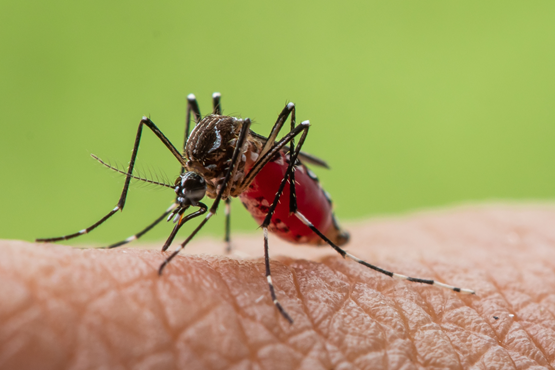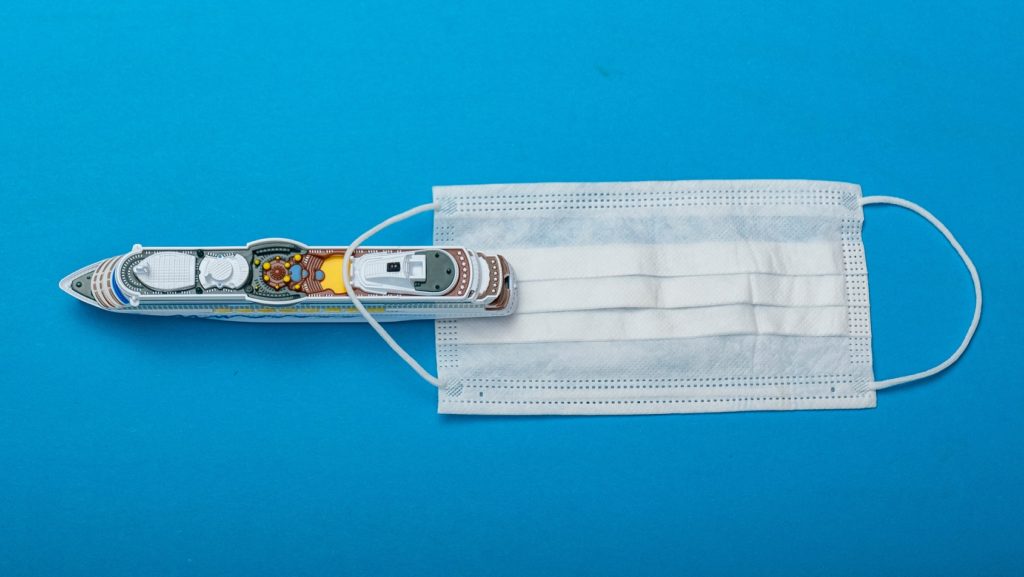
Dengue cases and deaths soar to record levels
read more

Update 29 September 2022: ANVISA updated cruise ship health protocols. Resolution RDC 574/2021 was revoked. Read more.
Starting this week, cruise ships return to the Brazilian coast after the last season was cut short
On 29 October 2021, The National Health Surveillance Agency (ANVISA) approved Resolution RDC 574, which regulates the sanitary requirements for embarking, disembarking, and carrying passengers on cruise ships in Brazilian ports during the COVID-19 pandemic. Transport of passengers by waterways was prohibited in March last year.
Since the approval of the 2021/2022 cruise season a few weeks ago, the federal port health authority had been discussing with the Ministry of Health, national councils of state and municipal health secretariats, and cruise operators, measures to be implemented to prevent the transmission of COVID-19 among cruise travellers. Eventually, a protocol was agreed upon, subject to it being reviewed should there be a change in the current epidemiological scenario.
Municipal health secretariats in the port of calls must have an operational plan approved by ANVISA setting out conditions for safe disembarkation of travellers for medical assistance.
International cruise trips will remain temporarily suspended.
Complete vaccination cycle for travellers (passengers, crewmembers and other shipboard professionals), with any vaccines approved by ANVISA or World Health Organization – WHO, and negative test for COVID-19 (molecular or antigen), are basic requirements under Resolution RDC 574/2021 for boarding cruise ships.
ANVISA detailed regulation also imposes other conditions for the cruise season to start from today. Key points required by the federal port health authority include but are not limited to:
The criteria for evaluating the epidemiological scenario of shipboard COVID-19 and the conditions for complying with the isolation of passengers and quarantine of cruise ships are described in the Ordinance GM/MS 2,928 of 26 October 2021 of the Ministry of Health. It classifies the epidemiological scenarios onboard a cruise ship in four different severity levels, namely:
| Epidemiological situation in the last 7 days | |
|---|---|
| 1 | There is no case record of COVID-19, reported by a medical professional in the daily negative notification |
| 2 | Passengers: Less than 0.1% of cases of COVID-19, considering the number of passengers on board, AND crewmembers or non-seafarers professionals: no COVID-19 case reported, with negative notification |
| 3 | Passengers: reported COVID-19 cases ≥ 0.1% of passengers on board, OR Crew members or non-seafarer professionals: one or morse COVID-19 case; OR The ship did not send daily negative notification of COVID-19 to ANVISA |
| 4 | COVID-19 community transmission among all travellers onboard; OR Occupancy ≥ 90% of the number of isolation cabins; OR Occupancy ≥ 90% of available medical facility beds |
Passengers and crew members with signs and symptoms of COVID-19 must report immediately to the vessel’s medical staff and remain isolated in the cabin until medical advice. They must also be tested for SARS-CoV-2 by molecular method (RT-PCR or RT-LAMP) or rapid antigen test.
Travellers with a positive, detectable or reagent test result must remain isolated for 10 days with mild or moderate flu syndrome, or 20 days when experiencing severe or critical SARS, counting from the onset of symptoms. Isolation must be in a cabin specially prepared for this purpose.
Once the period of isolation is complete, afebrile travellers who have not used antipyretic medication after 24 hours and without remission will be discharged from isolation. Those landed before the mandatory period must continue the isolation in a hotel designated to host individuals infected by SARS-CoV-2, at home or in a hospital.
Symptomatic travellers with negative RT-PCR or RT-LAMP testing should isolate themselves in their cabins until remission of symptoms. Those who test negative by rapid antigen test should have a fresh sample collected for RT-PCR or RT-LAMP test and remain confined until the test comes out and symptoms remit.
Persons sharing the same cabin or in the same travel group or who have been less than one and a half metres away from others for at least 15 minutes, without wearing a mask, or who have had direct physical contact with an infected individual are considered close contacts.
Close contacts of individuals suspected of being infected with the SARS-CoV-2 virus should be immediately identified and tested. Anyone in the same travel group or occupying the same cabin as a confirmed case, even with a negative test result, must remain isolated until disembarkation or a molecular test taken from the fifth day after contact with the infected person.
Asymptomatic close contacts of travellers with COVID-19 signs and symptoms who test negative on a molecular test may be exempted from continuing isolation.
ANVISA recommends disembarking passengers to self-isolate for 14 days, except for those who test negative or non-reactive to RT-PCR, RT-LAMP, or antigen tests.
Travellers who develop signs and symptoms of COVID-19 during post-trip quarantine should seek medical attention and report their travel history aboard the cruise ship. If they landed in the last five days, they would be considered to have been infected on board.
Cruise companies operating the 2021/22 season must provide adequate medical facilities onboard and ashore to handle suspect or confirmed cases of COVID-19, including travellers in need of hospitalisation.
Those responsible for the vessel’s health unit must ensure that necessary health protocols for COVID–19 are in place and updated to minimise the burden on state and municipal health resources and inevitable medical evacuations.
Embarkation and disembarkation of passengers, crew changes and repatriations must follow the guidelines established in Ordinance 658 of 5 October 2021.
Vessels falling under epidemiological level 4 will be quarantined following ANVISA specific protocols. The quarantine can be lifted after necessary heath controls have been applied and the ship has been reframed to level 3 or lower.
Crewmembers may disembark to seek medical assistance or travel home upon the termination of their contract of employment, subject to i) financial undertaking of the local agent defraying the costs incurred during transit in Brazil, ii) negative or undetectable laboratory result of RT-PCR test or antigen test, iii) ANVISA prior consent, and iv) presentation of air tickets.

The season kicks off on 5 November 2021, with the MSC PREZIOSA sailing from Santos. Completing the line-up, COSTA FASCINOSA, COSTA SMERALDA, MSC SEASIDE and the MSC SPLENDIDA will operate in various Brazilian ports until April 2022.
According to the latest projection by the cruise sector, operators MSC and Costa Cruises ships will offer 386,000 beds in 392 port calls, including national touristic destinations such as Rio de Janeiro, Santos, Salvador, Angra dos Reis, Balneário Camboriú, Búzios, Cabo Frio, Fortaleza, Ilha Grande, Ilhabela, Ilhéus, Itajaí, Maceió, Porto Belo and Ubatuba.
More about measures imposed by the Brazilian authorities to deal with the COVID-19 on vessels and platforms here.
Please read our disclaimer.
Published 1 November 2022. Updated 10 November 2022.
Related topics:
Rua Barão de Cotegipe, 443 - Sala 610 - 96200-290 - Rio Grande/RS - Brazil
Telephone +55 53 3233 1500
proinde.riogrande@proinde.com.br
Rua Itororó, 3 - 3rd floor
11010-071 - Santos, SP - Brazil
Telephone +55 13 4009 9550
proinde@proinde.com.br
Av. Rio Branco, 45 - sala 2402
20090-003 - Rio de Janeiro, RJ - Brazil
Telephone +55 21 2253 6145
proinde.rio@proinde.com.br
Rua Professor Elpidio Pimentel, 320 sala 401 - 29065-060 – Vitoria, ES – Brazil
Telephone: +55 27 3337 1178
proinde.vitoria@proinde.com.br
Rua Miguel Calmon, 19 - sala 702 - 40015-010 – Salvador, BA – Brazil
Telephone: +55 71 3242 3384
proinde.salvador@proinde.com.br
Av. Visconde de Jequitinhonha, 209 - sala 402 - 51021-190 - Recife, PE - Brazil
Telephone +55 81 3328 6414
proinde.recife@proinde.com.br
Rua Osvaldo Cruz, 01, Sala 1408
60125-150 – Fortaleza-CE – Brazil
Telephone +55 85 3099 4068
proinde.fortaleza@proinde.com.br
Tv. Joaquim Furtado, Quadra 314, Lote 01, Sala 206 - 68447-000 – Barcarena, PA – Brazil
Telephone +55 91 99393 4252
proinde.belem@proinde.com.br
Av. Dr. Theomario Pinto da Costa, 811 - sala 204 - 69050-055 - Manaus, AM - Brazil
Telephone +55 92 3307-0653
proinde.manaus@proinde.com.br
Rua dos Azulões, Sala 111 - Edifício Office Tower - 65075-060 - São Luis, MA - Brazil
Telephone +55 98 99101-2939
proinde.belem@proinde.com.br